Student and Graduate Spotlights
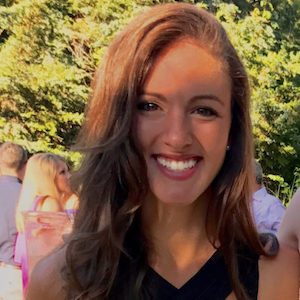 Rosanna Veggeberg
Rosanna Veggeberg
Graduated in 2018
Hometown: Boston, MA
Prior to the Master of Science in Clinical Research program at BU, as an undergraduate student at Brandeis University I worked in a neurobiology research lab using Drosophila (fruit flies) as my research subjects. After graduating, I realized how much I liked helping people rather than prodding flies. So exploring my interest in clinical research, I joined the P.A.I.N. Group at the Boston Children’s Hospital as a clinical research assistant working on human brain imaging research studies. It was then that I realized I wanted to continue down the path of clinical research but was unsure what direction I wanted to go in until I found the Master of Science in Clinical Investigation program at BU (now the Clinical Research program). It seemed like a valuable opportunity to gain more of an understanding of clinical research without pigeonholing myself into any one specialty before I was sure of what I wanted. Additionally, what attracted me to the program was the option to complete the program in just one year as well as the opportunity to complete a thesis project in a lab and subject that fit my interests.
I saw the thesis as an opportunity to work on a project that I was truly passionate about. I came into the master’s program with the idea to work with the researchers exposing the long-term effects of repetitive head injury in NFL players, Bob Stern at BU and Marty Shenton at Brigham and Women’s Hospital. With the full support and encouragement of Stacey Hess Pino and Janice Weinberg I was able to make that opportunity come to fruition and am now completing my thesis on the brain imaging analysis I ran comparing the brains of retired NFL players to retired non-contact sports athletes.
Going into the program, I was unsure of how much I could gain and accomplish in one year and where it would take me next. Fortunately, I recently started a new position as a clinical research coordinator for multi-therapeutic cancer clinical trials at Fox Chase Cancer Center in Philadelphia. It has been exciting to see just how well this program prepared me for this position. Especially since understanding and coordinating complex clinical trials is much different than any of my previous research experiences. I owe my understanding of the regulations, study design, protocol development (especially related to cancer trials), clinical trials specific acronyms and the many nuances that all attributed to a short learning curve and my ability to feel comfortable managing clinical trial protocols.
Overall this program offered me the opportunity to connect with fellow students, professors, and mentors as well as an experience and knowledgebase that has already proven to be valuable.
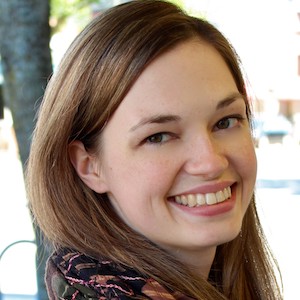 Juli Merhaut
Juli Merhaut
Graduated in 2013
Hometown: Canfield, Ohio
I wear multiple hats and I am constantly striving to find a perfect life blend of science and art! I’m always learning something new and I find that having diversity in my day-to-day professional life to be extremely fulfilling. I serve as an independent consultant for pharmaceutical and biotech companies seeking clinical operations project management support and I also teach two courses for the MSCI program. The combination of consulting and teaching allows me to flex the science-driven part of my brain in the clinical research enterprise. I also have a passion for theatre. To fuel that drive, I freelance as a stage manager in the Boston area. While this may initially appear to be at odds with my research background, I have found that the basic project management skills that I use in clinical research consulting and also teach to my students are easily transferrable to managing a theatrical production. I love being able to apply some of the skills that make me good at my research-related jobs in an artistic environment.
I knew that I wanted to pursue a career in clinical research, but I had received no formal training in this area while completing my undergraduate program. I researched many graduate programs and discovered that BU was the best fit for me. The curriculum is designed to provide students with the fundamental knowledge and skills to conduct clinical research, while also providing opportunities to take electives in areas of interest for specialization. This is exactly what I was looking for in a program.
All of my classroom-based courses were very useful, but I found the practicum component to be the most helpful. I’m a hands-on learner, so this requirement gave me the opportunity to apply all of the concepts that I had been learning in class. In doing so, I was able to really immerse myself in the clinical research process to further enrich my learning experience. I not only graduated with knowledge that I gained from the classroom, but I also had significant real-world experience to put on my resume. This made me even more marketable to potential employers.
The other aspect of the program that has proven to be really useful were all of the connections that I made between not only my peers, but also my professors, mentors and guest lecturers. Having access to many well-respected experts in the field and being able to tap into this network has led to many different career opportunities since graduation.
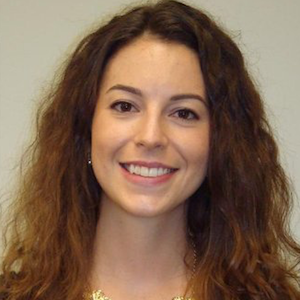 Ali Lacy
Ali Lacy
Graduated in 2017
Hometown: Coventry, Connecticut
After graduation I was able to transition from the clinical lab to a biotechnology company in Cambridge, MA. My position as Clinical Trial Research Associate for AOBiome Therapeutics involves multiple roles in clinical trial design, start up, execution, and completion. What drew me to this position was the first-in-class therapy and the opportunity to work on multiple projects, ranging from preclinical to phase II.
I have always had an interest in scientific research and my background in medical technology gave me the foundation to understand disease states in detail. I no longer wanted to identify diseases, instead I wanted to contribute to innovative therapies to treat them. I knew the MSCI curriculum would give me the opportunity to learn these skills, not only from those with experience, but also from the diverse backgrounds of my classmates.
The program gave me exposure to all aspects of clinical operations. This is especially useful in my current position within a smaller company, where attention to detail and a wide range of knowledge is key. The skills I gained during my thesis development/defense allowed me to better understand how to construct a trial from the ground up, collaborate with multiple investigators, and achieve a successful outcome.
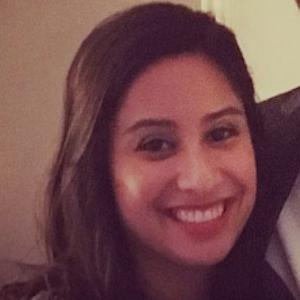 Alison Occhuiti
Alison Occhuiti
Graduated in 2017
Hometown, Somerville, MA
I chose the MSCI program because the classes were fantastic. I actually looked forward to going to class, even after working a full workday. The professors are knowledgeable, the classrooms are dynamic, and the projects and coursework are definitely pertinent to any clinical research professional. Continuing my professional development was also important to me; the MSCI program allowed me to be a part time student, taking classes at night and working at my own pace.
I credit the MSCI program for helping me get my dream job. Before my current position, I worked in a specialized part of the industry, and many companies outside of this specialization were skeptical of my ability to succeed anywhere else. My experiences in the MSCI program gave me the additional skills I needed to be a competitive candidate for any clinical research position, regardless of the company or institution. I am currently a clinical trial operations manager for a pharmaceutical company. I work as part of a large global team developing a cure for a rare disease for which there is only palliative treatment. The opportunity to be a part of this clinical program is something I might never have had without the MSCI program. I reference material from my classes, especially Designing Clinical Research Studies, Regulatory, Legal and Ethical Issues in Clinical Research, and Good Clinical Practice, every single day. I cannot recommend the MSCI program enough. If you are looking to take the next step in your clinical research career, this is the program for you.
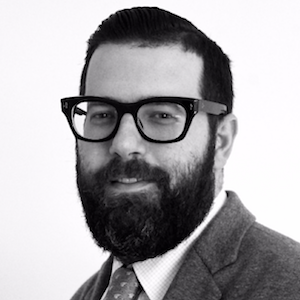 Sivan Mauer
Sivan Mauer
Graduated in 2016
Hometown: Curitiba, Parana, Brazil.
I am now doing a PhD in geriatric psychiatry at Sao Paulo University in Sao Paulo. Also, I have a position at Tufts University School of Medicine as Clinical faculty. I still have my private practice as a clinical psychiatrist in Brazil. I choose the BU Master of Science in Clinical Research Program (formerly the MS in Clinical Investigation) because the program gives you an overall sense of both sides: academia and industry. The program was very helpful, in particular, the statistic classes and methodology classes were and are really important for my professional growth.
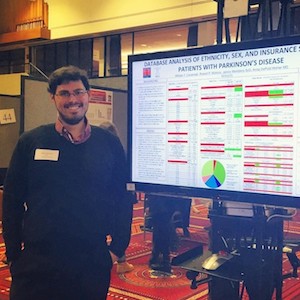 Toby Cavanaugh
Toby Cavanaugh
Graduated in 2015
Hometown: Norton, MA
When looking into graduate programs, the Dual Master’s Program in Medical Sciences and Clinical Research jumped out at me immediately. I required a graduate program that would prepare me for the field of clinical research. The Dual Master’s Program stood a head above other programs that appeared to be purely academic with little real-world application. The Clinical Research portion addressed the many different aspects of clinical research – the scientific side, the regulatory side, the ethical side, and the business side. The Medical Sciences portion was a useful dive into human anatomy, biochemistry, and physiology – all of which supplemented my ability to support clinical trials. I continuously use the knowledge I gained during my graduate degree, and it has also given me a competitive edge as a job applicant.
While every aspect of my education was important for me to absorb, the most important and useful part was the business course, “Management of Clinical Research”. This course dove deeply into the relationship between sponsors and sites, and discussed the responsibilities of each as both work together to run clinical trials. This course best prepared me to enter into the clinical research field. I’m currently an Associate Clinical Trials Manager within Study Management at Vertex Pharmaceuticals. I would not be where I am now without the wonderful education I received in the Dual Master’s Program in Medical Sciences and Clinical Research (formerly the MS in Medical Sciences and Clinical Investigation).
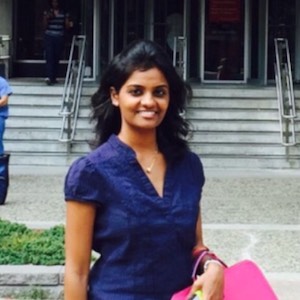 Priya Vajrapu
Priya Vajrapu
Graduated in 2017
Hometown: Hyderabad, India
I am a 2017 graduate and currently work as a regulatory specialist at Boston Medical Center’s Cancer Clinical Trials. My passion to make original contributions in the field of clinical research has urged me to gain deeper insight in this field. Boston University was my first choice to purse my graduate studies because it offers a practicum, thesis and a directed study in addition to the classic credits. Also, freedom to choose a mentor and the flexibility to do the practicum with an independent third party clinical research organization or with clinical research professionals from a drug, device or biotech company appealed to me. While courses like regulatory compliance and ethics aided me in development and implementation of clinical trials, my practicum played a very important role in understanding the basics of clinical research and paved a way to my career path.
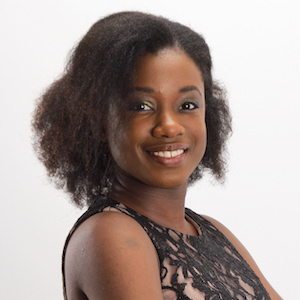 Gloria Boye
Gloria Boye
Graduated in 2016
Hometown: Accra, Ghana
I started the BU MSCI program in August 2014 and graduated in May 2016. At the time of starting, my long-term goal was to become a medical doctor with formal training in clinical research. Prior to this, I had worked as a Clinical Research Coordinator, and enjoyed planning and coordinating research activities. After taking some courses, I became intrigued by the regulatory, resource management and operational logistics aspects of running clinical trials. These interests eventually led me to pursue a Clinical Project Management career track within the Life Sciences industry. I am currently working at General Electric Healthcare as an Assistant Clinical Project Manager on a pivotal trial of a diagnostic drug to detect Coronary Artery Disease.
While all the courses in the MSCI program were relevant, the most impactful for me was the Seminar in Clinical Investigation. This course taught me how to think critically think through the major components of clinical research studies that allow you to evaluate the relevance, validity and impact of a study as a whole. I also took advantage of resources at the School of Public Health to augment my learning of epidemiologic principles and research design.
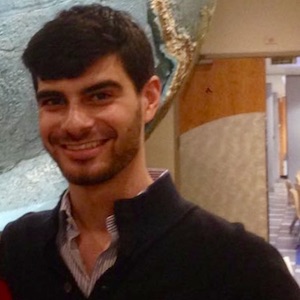 Julio C. Mantero
Julio C. Mantero
Graduated in 2015
Hometown: Guaynabo, Puerto Rico
The Clinical Research program at BU (formerly the Clinical Investigation program) has provided me with a solid foundation to several areas of clinical research including federal regulations, ethics, biostatistics, study design and management. The curriculum and the experienced faculty gave me the information and tools needed to navigate the challenging and rapidly changing environment of clinical research. In addition, during the program’s practicum I had the opportunity to be exposed to and work with a multifaceted network of doctors, trial coordinators and pharmaceutical companies. Completing the program has allowed me to start my career in translational research where I have been involved in the outcome analysis of several clinical trials testing potentially new therapeutics for patients suffering from systemic sclerosis. There are many aspects to clinical research and I feel that now I have first-hand knowledge of and understand the efforts and planning needed for the successful execution of a clinical trial.